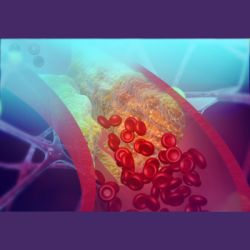Prostate cancer is one of the most common cancers among men. Patients are determined to have prostate cancer based on Prostate-Specific Antigen (PSA), a prostate-specific antigen used as an index for the screening of prostate cancer. However, diagnostic accuracy for prostate cancer is as low as 30%. That is why a large number of patients have to undergo additional invasive biopsy and suffer from side effects, such as bleeding and pain.
Recently, the Korea Institute of Science and Technology (KIST) announced that the collaborative research team led by Dr. Kwan Hyi Lee from the Biomaterials Research Center and Professor In Gab Jeong from Asan Medical Center developed a technique for diagnosing prostate cancer from urine within only twenty minutes with almost 100% accuracy. The research team developed this technique by introducing a smart AI analysis method to an electrical-signal-based ultrasensitive biosensor.
As a noninvasive method, a diagnostic test utilisng urine is convenient for patients and does not need invasive biopsy, thereby diagnosing cancer without side effects. However, as the concentration of cancer factors is low in urine, a urine-based biosensor has been utilised for classifying risk groups rather than for precise diagnosis thus far.
Dr. Lee's team at the KIST has been working toward developing a technique for diagnosing disease from urine by utilising the electrical-signal-based ultrasensitive biosensor. An approach utilising a single cancer factor associated with a cancer diagnosis was limited in increasing the diagnosis accuracy to over 90%. However, to overcome this limitation, the team simultaneously utilised different kinds of cancer factors instead of using only one to enhance the diagnostic accuracy innovatively.
The team developed an ultrasensitive semiconductor sensor system capable of simultaneously measuring trace amounts of selected four cancer factors in urine for diagnosing prostate cancer. They trained AI by using the correlation between the four cancer factors, which were obtained from the developed sensor. The trained AI algorithm was then used to identify those with prostate cancer by analysing complex patterns of the detected signals. The diagnosis of prostate cancer by utilising the AI analysis successfully detected 76 urinary samples with almost 100 percent accuracy.
"For patients who need surgery and/or treatments, cancer will be diagnosed with high accuracy by utilising urine to minimise unnecessary biopsy and treatments, which can dramatically reduce medical costs and medical staff's fatigue," Professor Jeong at Asan Medical Center said. "This research developed a smart biosensor that can rapidly diagnose prostate cancer with almost 100 percent accuracy only through a urine test, and it can be further utilised in the precise diagnoses of other cancers using a urine test," Dr. Lee at the KIST said.
Source: ACS Nano
Image Credit: iStock



























